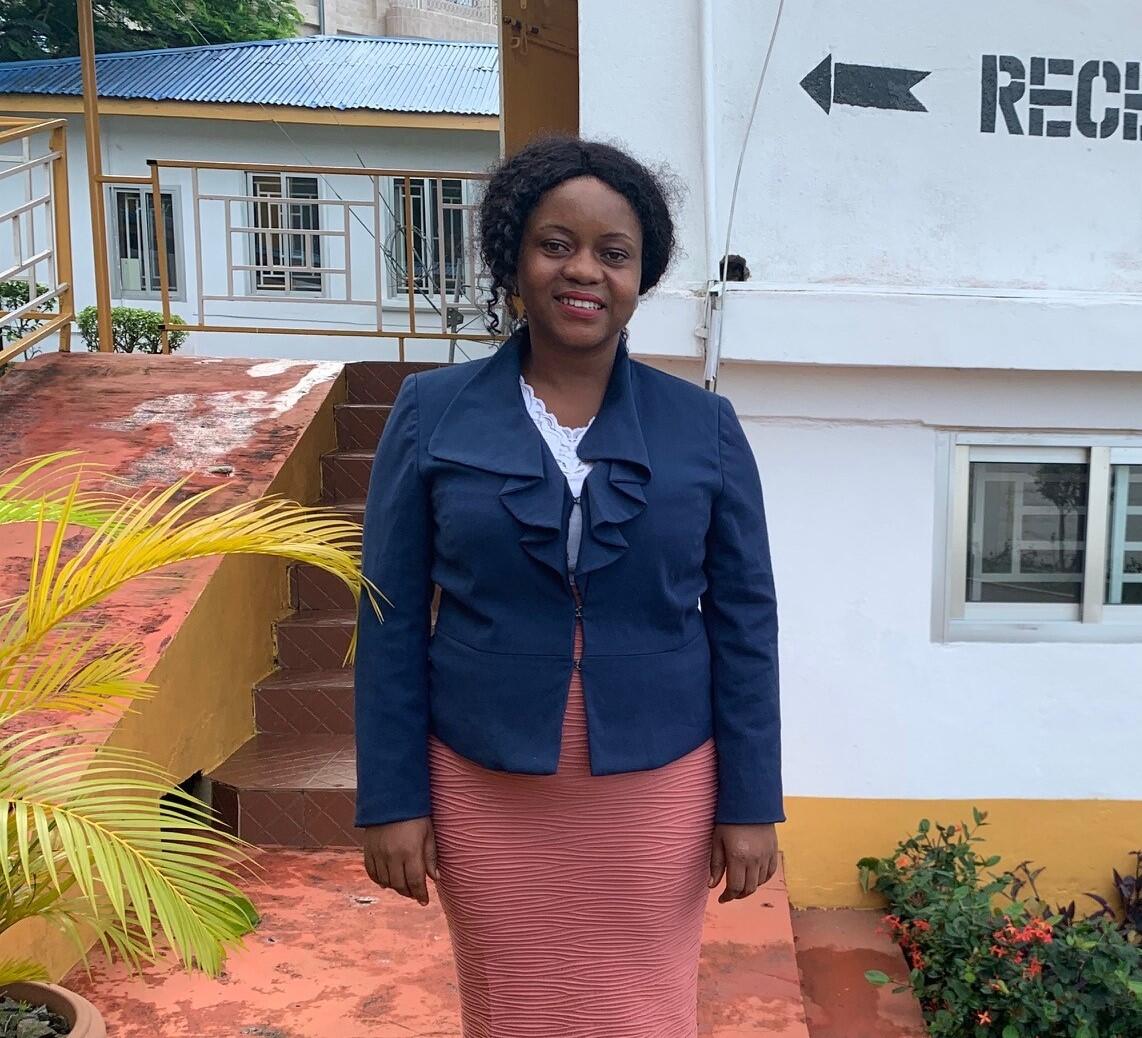FREETOWN, Sierra Leone, 22 August 2019 - In Sierra Leone, approximately 70 per cent of the 2.7 million young people aged 15-35 are underemployed or unemployed. An estimated 800,000 youth are actively searching for employment. In September 2018, the Vice-President of Sierra Leone officially launched the national youth service scheme to try to reduce the high youth unemployment rate in the country. The scheme is designed to equip young graduates with the necessary skills and work experience to make them attractive to employers. UNFPA provided sexual and reproductive health training for the first cohort of 200 national youth corps volunteers.
Recruiting national youth corps volunteer
The selection process for recruiting national youth corps volunteers involves an application, followed by an interview. Once selected volunteers undertake a 21-day orientation and training programme. Selected volunteers are assigned work placements in various sectors, including the private sector, government institutions and local and international non-governmental organisations. “The orientation was really tough, especially the physical training,” expressed Kadiatu Kanu, a national youth corps volunteer working in the finance section at UNFPA in Sierra Leone. “But I really enjoyed the daily talks from inspirational speakers on everything from entrepreneurship to agriculture. The other thing I liked was the presentational skills course,” she added.
Kadiatu, who was born in Freetown, completed a four-year Institute of Public Administration and Management course at the University of Sierra Leone, where she was awarded a BSC honours degree in applied accounting. Explaining why she wanted to join the national youth service scheme, Kadiatu said “I wanted to understand what being a volunteer entailed and to make a contribution to society. I wanted to have a different experience from working in the private sector.”

Kadiatu Kanu with her finance colleague at the UNFPA scountry office. UNFPA Sierra Leone/2019/Karen Davies
Kadiatu’s work in the finance section at UNFPA Sierra Leone consists of filing vouchers, completing bank reconciliations for petty cash, supporting the preparation of financial reports for audit purposes, reviewing travel claims and assisting in updating the consultant monitoring tool.
“I have learned so much about the work of UNFPA since I started in January 2019, and not just in finance,” explained Kadiatu after her first six months as a volunteer. “I was fortunate to visit two projects in the field funded by Irish Aid, the UNFPA-supported GATES project (Girls’ Access to Education and Services) and UNFPA-supported safe spaces for young girls to educate them on avoiding early marriage and teenage pregnancy.”
“For the GATES Project, I participated in facilitating a question and answer session for guidance counsellors on scenarios faced by young boys and girls, and provided answers on how to mitigate the risks associated with teenage pregnancy. This was a really interesting activity which will make a big impact on the lives of young girls in Sierra Leone,” said Kadiatu.
“In Port Loko and Kambia districts, I joined colleagues in monitoring the safe spaces that have been created for marginalised and vulnerable girls,” explained Kadiatu. “These spaces, where girls meet regularly and receive support from health and social workers, are so important.”
Supporting young people to achieve their full potential
As part of the national youth service scheme, national youth corps volunteers are also expected to take on a second voluntary assignment. Once a week, Kadiatu mentors and teaches young people aged between 9-15 years old (both in and out-of-school) about sexual and reproductive health and rights (SRHR) and basic hygiene. Together with two other youth corps volunteers assigned at UNFPA, Kadiatu has visited students at local schools in the eastern part of Freetown where there is a shortage of teachers, and the subject matter of SRHR is not included in the curriculum. The volunteers mentor and provide information on SRHR and how to prevent gender-based violence to children aged 11-14.
Dreams for the future
When asked about her future, Kadiatu said, “My dream for the future is to continue working for UNFPA because its mandate for delivering a world where every pregnancy is wanted, every childbirth is safe and every young person’s potential is fulfilled, is so close to my heart.”


